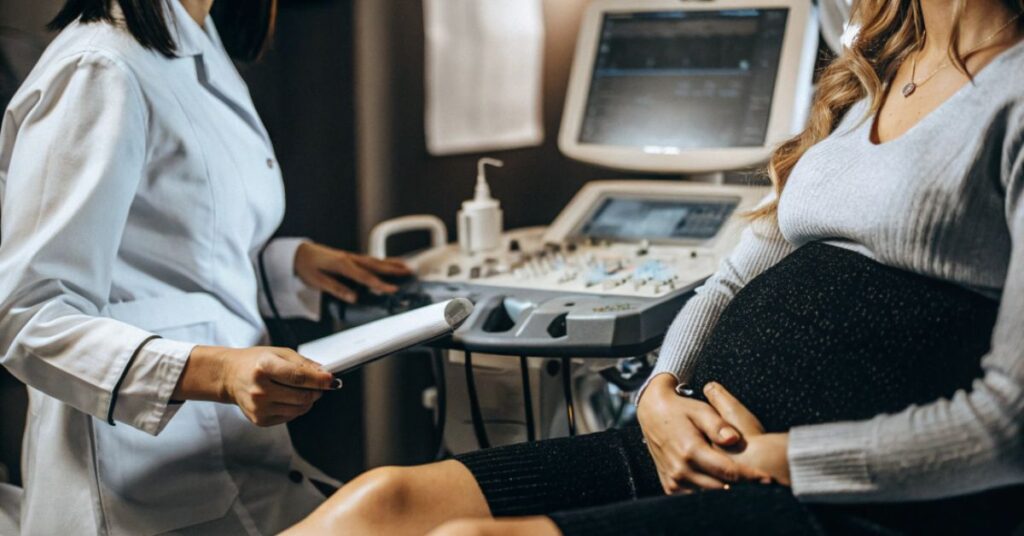Polycystic Ovary Syndrome (PCOS) is one of the most common hormonal disorders affecting women of reproductive age. It can cause irregular periods, excess hair growth, acne, weight gain, and even infertility. Because symptoms vary from woman to woman, PCOS can sometimes be difficult to diagnose. A gynecologist plays a critical role in identifying the signs and confirming the diagnosis using specific criteria, tests, and clinical evaluations. This article explains how gynecologists diagnose PCOS and what steps are typically involved in the process.
Understanding PCOS
PCOS is a condition in which a woman’s ovaries produce an abnormal amount of androgens (male hormones), which can interfere with ovulation. It is also associated with insulin resistance, metabolic issues, and the presence of small cysts on the ovaries, although not all women with PCOS have cysts.
Common Symptoms That Lead to PCOS Evaluation
A woman may be referred to a gynecologist for possible PCOS diagnosis if she experiences:
- Irregular or missed periods
- Excess facial or body hair (hirsutism)
- Severe acne
- Weight gain or obesity
- Thinning hair or scalp hair loss
- Difficulty getting pregnant
- Darkened skin patches (acanthosis nigricans)
The Role of a Gynecologist in Diagnosing PCOS
Gynecologists follow a step-by-step approach to diagnose PCOS based on clinical signs, patient history, physical exam, and diagnostic tests.
Step 1: Reviewing Medical and Menstrual History
The gynecologist begins by asking questions such as:
- How often do your periods occur?
- Do you experience heavy bleeding or skipped cycles?
- When did symptoms like acne or excess hair begin?
- Are you trying to conceive?
- Do you have a family history of PCOS or diabetes?
This conversation helps identify patterns that suggest hormonal imbalance.
Step 2: Physical Examination
The doctor performs a physical check-up to look for:
- Signs of hirsutism (facial/chest hair)
- Acne and oily skin
- Hair thinning on the scalp
- Dark skin patches, often on the neck or armpits
- Body mass index (BMI) to evaluate weight status
These physical markers help assess the presence of high androgen levels and insulin resistance.
Step 3: Pelvic Examination
A manual pelvic exam may be performed to:
- Check for ovarian enlargement
- Feel for any lumps or abnormalities
- Evaluate uterine size and tenderness
While a pelvic exam isn’t always conclusive, it provides additional information to support the diagnosis.
Step 4: Blood Tests
Gynecologists order blood work to measure hormone and metabolic levels. Common tests include:
Hormonal Tests
- Luteinizing hormone (LH) and Follicle-stimulating hormone (FSH): Often elevated in PCOS
- Testosterone and DHEAS: To check for high androgen levels
- Prolactin: To rule out other causes of irregular periods
- Thyroid function (TSH): To exclude thyroid-related disorders
- Estrogen and Progesterone: To assess menstrual hormone balance
Metabolic and Insulin Tests
- Fasting blood sugar and insulin
- Hemoglobin A1c: To check for prediabetes or diabetes
- Lipid profile: To evaluate cholesterol and triglyceride levels
These tests help identify insulin resistance and related metabolic issues often associated with PCOS.
Step 5: Pelvic Ultrasound
A transvaginal or abdominal ultrasound is conducted to visualize the ovaries and uterus. The gynecologist looks for:
- Enlarged ovaries
- Multiple small follicles (typically 12 or more in each ovary)
- “String of pearls” appearance of cysts
Note: Not all women with PCOS have visible cysts, and having cysts doesn’t always mean PCOS. The ultrasound supports but doesn’t solely determine the diagnosis.
Diagnostic Criteria for PCOS
Gynecologists use the Rotterdam Criteria (2003) to diagnose PCOS. According to these criteria, a woman must have at least two of the following three:
- Irregular or absent ovulation (e.g., irregular periods)
- High androgen levels (clinically or via blood tests)
- Polycystic ovaries on ultrasound
Other conditions that mimic PCOS—like thyroid disorders, adrenal hyperplasia, and hyperprolactinemia—must be ruled out before confirming diagnosis.
Differential Diagnosis: Ruling Out Other Conditions
Before confirming PCOS, gynecologists ensure the symptoms aren’t caused by:
- Hypothyroidism
- Cushing’s syndrome
- Androgen-secreting tumors
- Congenital adrenal hyperplasia
This ensures the correct treatment path is chosen.
How Long Does Diagnosis Take?
Initial consultations and tests may take a few weeks. In some cases, multiple visits and follow-ups are required, especially if symptoms are borderline or overlap with other health conditions.
Importance of Early Diagnosis
Early detection of PCOS is vital to:
- Prevent infertility
- Manage metabolic disorders (diabetes, high cholesterol)
- Reduce risk of endometrial cancer
- Address mental health concerns like anxiety and depression
- Improve quality of life with timely treatment
What Happens After Diagnosis?
Once PCOS is diagnosed, the gynecologist may recommend:
- Lifestyle changes (diet, exercise)
- Hormonal birth control to regulate cycles
- Anti-androgen medications for hair and skin issues
- Metformin for insulin resistance
- Fertility treatment if pregnancy is a goal
The treatment is tailored to the woman’s age, symptoms, and reproductive plans.
Conclusion
A gynecologist diagnoses PCOS through a combination of medical history, physical exams, blood tests, and ultrasounds. The use of established diagnostic criteria helps ensure accurate identification of the condition, followed by personalized treatment. Early diagnosis can prevent complications and help women manage their symptoms effectively. If you experience signs of PCOS, consulting a gynecologist is the best first step toward understanding and managing your health.
FAQs
Can a gynecologist diagnose PCOS without an ultrasound?
Yes, if the other two criteria—irregular periods and high androgen levels—are present, a diagnosis can be made even without visible cysts.
How early can PCOS be diagnosed?
PCOS can be diagnosed in adolescence, especially if symptoms like irregular periods and hirsutism begin soon after puberty.
Are blood tests always required to diagnose PCOS?
Yes, hormone and insulin level tests are essential to confirm high androgens and rule out other disorders.
Is PCOS diagnosis possible in one visit?
No, it usually takes multiple visits for full testing, ultrasound evaluation, and diagnosis confirmation.
Can you have PCOS with regular periods?
Yes, some women with high androgens and ovarian cysts may still have regular periods, though it’s less common.

